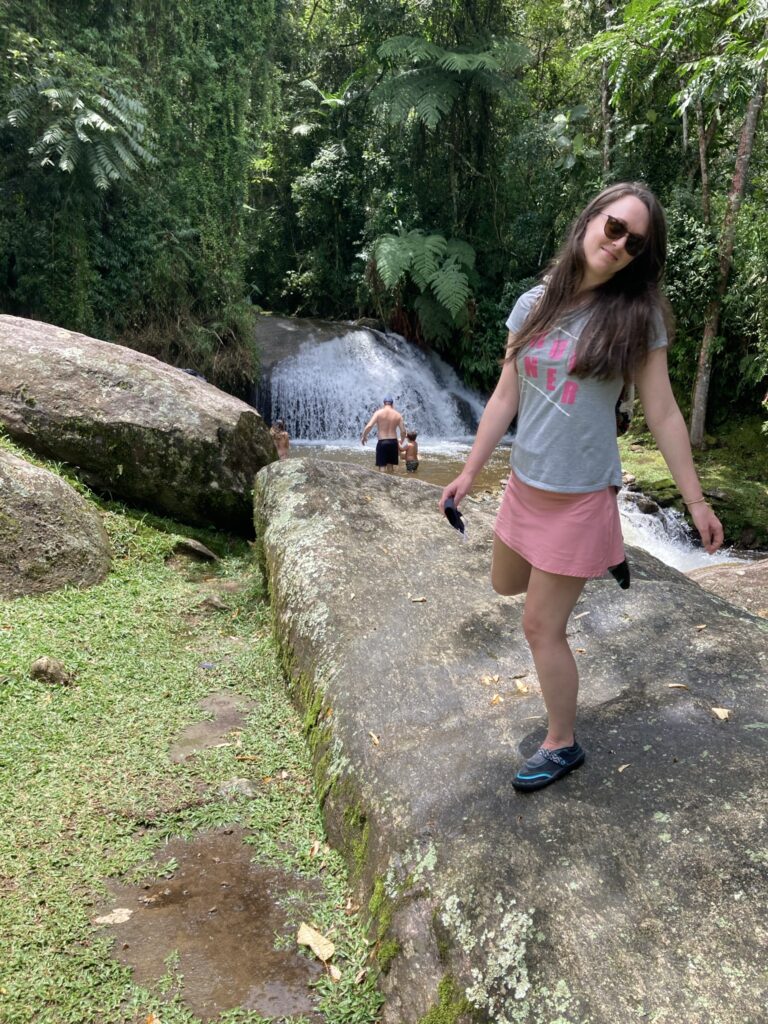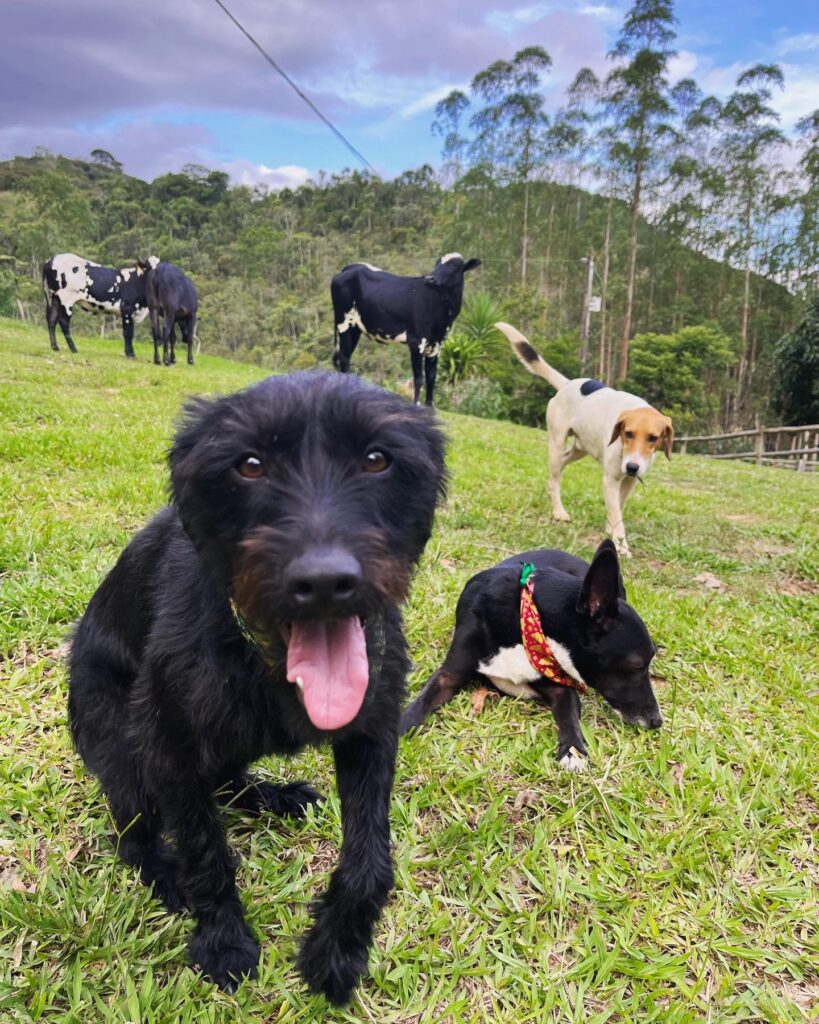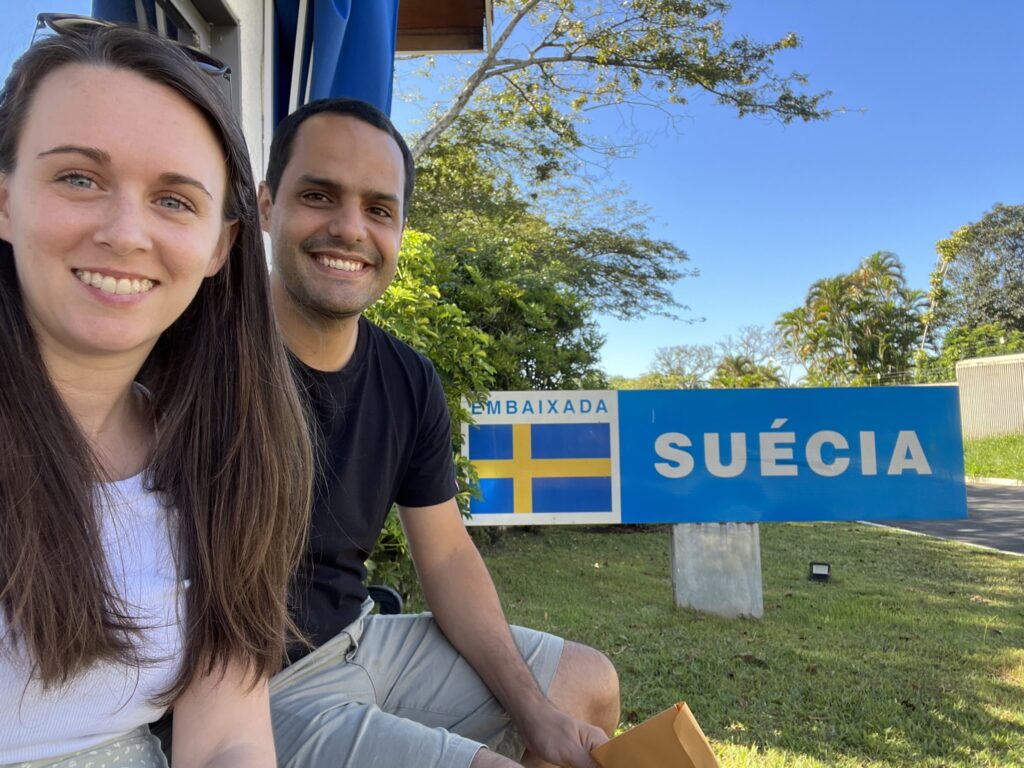My Journey from the U.S. to Brazil and Sweden
Now, I’m going to be honest with you. Living abroad is not the easiest path I’ve taken in life. It’s full of challenges, tribulations, embarrassment, and confusion—all the time. Over the years, these struggles have subsided, but before you decide to take the leap, you might want to read this to truly understand what you’re getting yourself into.

The Decision to Move Abroad
A few years ago, I was working in county government in Pennsylvania, helping people with intellectual disabilities gain independence and employment. Despite my passion for the job, I was barely making enough to cover my bills, thanks to student loans.
On top of that, I was in a long-distance relationship with my Brazilian partner, crying myself to sleep most nights because I couldn’t believe this was what life was supposed to be. I craved more—more fulfillment, more adventure, more purpose. Then, I read The Alchemist by Paulo Coelho, and it changed my perspective. I realized that my biggest obstacle wasn’t external; it was me. My own fears were holding me back. Inspired, I made the life-changing decision to move to Brazil.
The Reality of Moving to Brazil
With a degree in International Relations and a deep desire to become fluent in another language, I took a huge leap of faith. My partner was in Brazil, working his dream job, and I wanted to be with him.
But here’s the thing: just because you move to a different country doesn’t mean your problems disappear. Who knew, right? While I was chasing my dreams, I was also carrying unresolved personal struggles. I quickly landed a job teaching English, effectively throwing myself into an immersive language experience. However, my financial struggles didn’t magically disappear—I was making just $300 USD a month. Not so glamorous, is it?
Money is a necessity, and without financial independence, I faced obstacles. I couldn’t afford Portuguese lessons, and I lacked confidence in my speaking skills. I constantly made mistakes, misunderstood conversations, and felt like an outsider. This created a deep-seated anxiety around learning languages, something that stayed with me for years.

Finding Stability and Growth
Despite these struggles, life went on. I adopted a stray dog, experienced new foods, and explored new places. But on the surface, things seemed more put together than they actually were. Eventually, I found a remote job as an independent contractor. While it lacked job security (subtle foreshadowing), it allowed me to gain experience and, more importantly, financial stability.
For the first time, I could afford things that seemed impossible before—Portuguese courses, proper furniture, even sending flowers to my mom on her birthday. I recognized the privilege of earning USD while living in Brazil, and this allowed me to build a better life.
We moved into a bigger apartment with a spacious balcony, where we could watch the sunset. Life was improving. And then—COVID-19 happened.
How the Pandemic Shifted My Perspective
Oddly enough, the pandemic turned out to be a blessing in disguise for my language learning. The pressure to speak Portuguese 24/7 disappeared, and with that, I relaxed. One day, I suddenly realized I could understand almost everything my partner’s parents were saying. It was a breakthrough moment.
So, if you’re struggling with learning a foreign language, my advice? Relax. Remove the pressure. Because once again, my biggest obstacle was me.
The Next Big Move: Sweden
Over time, I healed. I was promoted to Department Supervisor, and my partner got a dream job in Sweden. This meant another international move—and another language to learn. But I was ready. Truthfully, I felt like I needed to leave Brazil. No matter how hard I tried, I still didn’t feel like I could fully be myself in Portuguese.
Even after years of effort, I doubted my ability to advance in a Brazilian workplace. I would feel mentally drained after spending an evening speaking Portuguese, and even something as simple as driving on the highway would stress me out due to the frequent accidents I saw. Brazil’s extroverted culture made me feel out of place. No matter how hard I tried, I sometimes felt like I just didn’t belong.
Then, we moved to Sweden—where introverts thrive and personal space is abundant. As I adapted to this new country, I realized just how much I had changed. The girl who once struggled to form a single sentence in Portuguese was now having full conversations. It’s incredible how a change in environment can reveal your personal growth.

The Setback That Became a New Beginning
Remember when I mentioned the job insecurity? Yeah, they let me go.
About a year into my life in Sweden, I was laid off. I couldn’t tell you why, and honestly, I don’t think they could either. AI is transforming industries, and the job market is shifting rapidly. But instead of panicking, I pivoted. I started learning Swedish at Svenska för invandrare (SFI) and focused on my job search. I also launched this blog to document my travels and experiences.
Unexpectedly, learning Swedish helped me with my Portuguese. After six years, my brain finally connected the dots. I feel more confident in my language skills than ever before.
The Struggles of Finding a Job in Sweden
Finding a job in Sweden has been its own challenge. The market is tough, and breaking in as a foreigner takes patience. But I keep trying.
I’m learning Swedish, speaking Portuguese, and living abroad. I’m literally living my dream. So why do I sometimes feel like it’s not enough? I think we all need to take a step back and recognize how far we’ve come.
Should You Move Abroad?
If you’re wondering whether you should move abroad—no matter how difficult it might be—my answer is yes.
Do I miss my family? Absolutely. I wish I could watch my nieces grow up, have breakfast with my dad, or take a drive with my mom whenever I want. Nobody here shares the same nostalgic music memories from my middle school years. I still don’t completely belong.
But this life? It ended my nightly cry sessions. I’m enriched. I’m a better person. I understand the world in a way I never imagined. I’m even a little extroverted now. And best of all? I don’t get headaches from speaking Portuguese anymore.
So, all I can say is this—if I can do it, you can do it.
